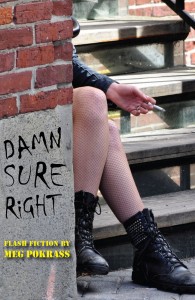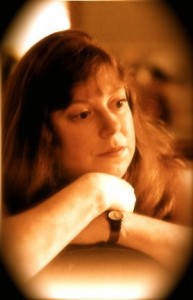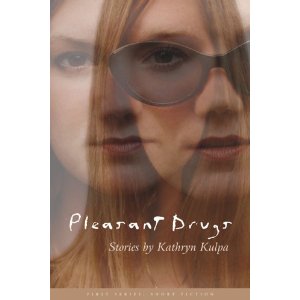Oh yes, Philadelphia looms very large in the novel. Originally I was actually thinking of Philadelphia itself as serving as the primary antagonist, and in the final version of the novel it still kind of does. The idea of place as antagonist very much appealed to me.
The location as being crucial to the story came from the simple fact that I started writing this book when I was feeling very lonely and isolated in Philadelphia when I lived there for a few years. The funny thing is I actually really love an awful lot about Philadelphia and love many, many wonderful Philadelphians. The theater and art scene scene there is great, the authors I met from Philadelphia are amazing, it’s inexpensive to live, the food is great, and you can walk the entire city. Nonetheless, I always felt like it was a club I wasn’t allowed to join, a feeling I had never had any other city I’ve ever lived (and at this point those cities include San Francisco, Los Angeles, New York City, and Washington DC).
My love-hate relationship with Philadelphia comes through throughout the novel. Since each character’s story heads in a very different direction, the city becomes more sinister in Alex’s arch, less relevant in Min’s and warmer and nicer in Mo’s.
If your book had a flyleaf synopsis, what might it say?
Oh no. I really struggled with the short synopsis and the elevator pitch for the book. Maybe:
Philadelphia in the late 90s, heyday of the ecstasy party scene, where three strangely similar twenty-somethings stumble into each other’s lives. For one character it’s a comedy, for another it’s a tragedy, and for the third it’s a story of redemption and recovery.
Or something like that. I like to show that the characters are similar enough to feel they “found each other” but different enough to head in very different directions. As of now I think it is already obvious whose arch is the tragedy, whose is the comedy and whose is the redemption story but I would love to know what other people guess.
I’ve really thrashed about with the synopsis for this primarily because the three characters have such different arcs.
Who are your inspirations for Min, Mo, and the third character? I missed that his name was Alex at first.
Well, that’s a long answer.
First, I have named all three characters, we just haven’t gotten to really see Alex yet in any detail other than to know he has a weird, and probably alcoholic, Dad (the first chapter is named for him but he only pokes his head in in the last line). The three main characters are Alex Gromov, Daniel Morowitz, and Min Miller. (Don’t ask her what her full first name is. She doesn’t like to talk about that.)
The novel started out as two different, and initially separate, ideas. First I wanted to write a story about a character in the heyday of the ecstasy scene who sees his emotions as bearing some essential relationship to what God was trying to tell him. Keep in mind, I’ve been an atheist since middle school, but I like the idea of someone who believes that emotions are sacred and meaningful being exposed to drug that creates a sense of bliss and togetherness on command. The implications of drugs that can produce, well, ecstasy are really profound and in some cases wonderful and other perspectives kind of disturbing. So that was the very basic theme I wanted to explore.
The next idea I had, which is weirdest of all, is to have one character who thinks two dimensionally, one character who thinks three dimensionally and one character who thinks four dimensionally (4th dimension being time) and alternate among their perspectives. I also wanted to make the point that each perspective is not necessarily superior to the other, they just have different strengths and weaknesses. So Morowitz, my most intellectual character, is actually a two-dimensional thinker, images related to him are flat, bifurcated, “column A & B,” thinking which is actually very useful for intellectual endeavors, while Alex the character most dominated by his emotions is three-dimensional in that he thinks in terms of depth, space, touch, but is not very good about thinking of how things progress over time. Despite the fact all of his chapters involve flashbacks, he is not good at connecting them to the world he is in now. Meanwhile, Min is the four dimensional thinker. She is always thinking in terms of probability and where things were and where they’ll end up. Her imagination is constantly projecting her through time and space.
So, yes, they all started out concepts and then I sort of fit the characters around them. Mo is loosely based on a friend of mine from college, but really became a voice for my most anxious, cynical, and overly intellectual self-protection mechanisms, which I then turned up to an absurd degree for him. Many aspects of Min were inspired by a few women I have known and, in some cases, dated. From the beginning I am hiding a lot about each character, but I am hiding the most, by far, about Min. She is most inspired by a friend of mine who was partying way too much at one point and then, after months of just figuring that was just the way she was, I learned that her mother had died the year before. In my 20 something self-absorption it didn’t occur to me to even look into whether there was something deeper going on with her. Part of Min was also borrowed from a friend whose father is mentally ill, and who clearly tortured himself with the idea that one day that would happen to him. Lastly, what I brought to the table about Min was the feeling of having way too much responsibility way too young and some time in my adult life kind of acting out. And that is Min: Someone who is rebelling really for the first time in her life, who is grieving a major loss, but someone who is also the pretty girl at the party who nobody thinks could have any problems.
I borrowed the most from my own biography to make Alex but I assure you he is not, “me thinly disguised,” as Woody Alan would say. He is much more mystical and erratic than me (and he’s also better looking. When I think of him I picture a handsome friend of mine from high school). But yes, we both have crazy Russian dads and bad shoulders. Really though, I kind of related the most to Min (and writing Mo was just more fun. It’s nice to tap into and exorcise all that cynicism and anxiety).
What sort of feedback would you like to get?
All and everything and any. Tell me you hate it. Tell me it doesn’t work. Tell me you think that thing works but this other thing doesn’t. I miss workshopping and I want genuine advice on how to make the novel better, if not for the next draft of this novel but for my future writing. Explaining both what works and what doesn’t is a crucial part of that process.
Can you give us an overview of the project?The novel has 18 chapters and an epilogue. There are also 6 short vignettes in each 3 chapter “act” the feature the POV of different secondary characters. I was going for a waltz-like format 1,2, 3, and then a vignette to mark the “act” as its own unit. So all acts go Alex, Min, Mo’s POV then a vignette mixed in following the character it is most appropriate for that character to follow. So, all in all, posting this each and every Sunday I should be doing this straight through the summer. I hope people will follow it! And one thing I will say, I am very proud of how the story ends, so I hope you’ll make it through.
Did you try to get this published prior to posting on Fictionaut? What happened?
Yes, I sent it to a number of places. I got very nice feedback and surprising number of nice words about the book, but no sale. I think my goal of making both a slow and a small book might heave doomed it for mass market, but I didn’t want to compromise on that. When I started sending it out to small publishers and looking into self-publishing I thought about it. What is my goal here? Is it to make a little money but then have to try to get everyone to buy my book? No, I have a day job, I really just want people to read it. And given that I originally wrote it as a serial for a creative writing class (in Philadelphia. One that is NOTHING like the Sci Fi writing class featured in the novel, though. I swear), it will be perfect to unveil it week after week as a novel on Fictionaut.
What plans do you have when the novel has been posted to Fictionaut in its entirety?
I suspect I will know the answer to that by the time I am finished with it. I first started getting excited about the idea of serializing it on Fictionaut two months ago and talked myself into it with a, “let’s see what happens,” attitude. If people respond well to it and I get helpful feedback, I will likely work on another draft and perhaps publish the final draft on my website (whenever I have, um, set one up).
What are you working on now?
First I am trying to find a home for my latest short story, Common Decency. It is, once again, the story of a small, bookish, shy character (I love to write about those types) who discovers how deep his inner prude runs when his parents publish a bestselling book of erotica. I think it may be the funniest story I have written, but it’s both pretty small and personal while kind of bawdy at the same time, so I really do not know what the right journal for it might be. Is there a Journal of Sex Comedies About Uptight People? If so that should be its home!
Also I am torn between two novels I have begun. The first is a sprawling satire about the Chinese Invasion of Russia in, like 2025. Believe it or not, it’s a comedy that includes space mirrors, nanites, an American hipster drafted to capture a Russian blogger in Siberia, space elevators, hang gliders, the congressional gay caucus, robots, nerds, a Chinese general who thinks he is sexy vampire a la True Blood, and, well, someone very Sarah Palin-like as president of the U.S.
The other is a much more ambitious piece about people throughout human history who have been granted the super powers their unconscious brains asked for one night in their sleep. I am intimidated by it because it means I have to know a hell of lot more about what it was like to live in previous societies than I do. Still I think about this idea all the time, especially my lead character who is the closest thing to omniscient as anyone could ever be…and unsurprisingly it kind of sucks for him. Hope I eventually write both or either of these books, but in the meantime I just want to get folks to read X!
If any readers who are not Fictionaut members would like to send you comments, where can they email them?
I would prefer people friend me on FB: http://www.facebook.com/benmatvey and write me through that.
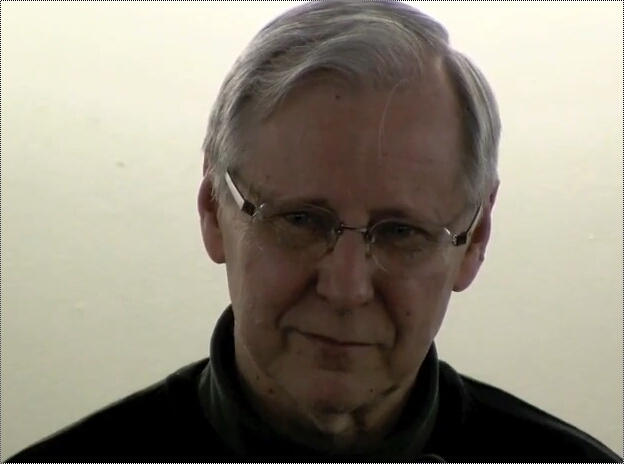

 My editor at The New Yorker, Roger Angell, who patiently read and rejected nineteen of my stories before accepting the twentieth one, told me early on, “We don’t know who these people are. We don’t know how we are supposed to feel about them. We don’t want to be condescending toward them.” That was a complicated thing for me to figure out. But I realized that I had to work out my own attitude toward the characters. I had been too superior and judgmental. I had to try to stand at enough distance not to interfere, but close enough to be able to see them from their own point of view.
My editor at The New Yorker, Roger Angell, who patiently read and rejected nineteen of my stories before accepting the twentieth one, told me early on, “We don’t know who these people are. We don’t know how we are supposed to feel about them. We don’t want to be condescending toward them.” That was a complicated thing for me to figure out. But I realized that I had to work out my own attitude toward the characters. I had been too superior and judgmental. I had to try to stand at enough distance not to interfere, but close enough to be able to see them from their own point of view.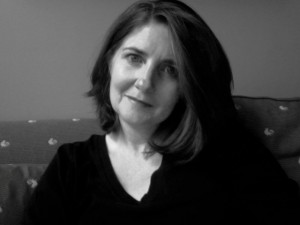
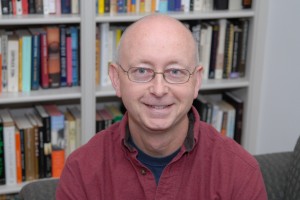
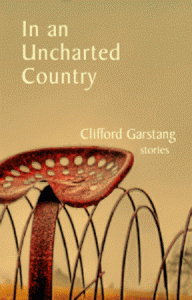
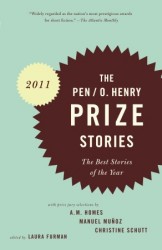 Origin Stories, O. Henry Winners, Readings, and Book Releases are just a few Fictionaut highlights this month. “True Conditions” by
Origin Stories, O. Henry Winners, Readings, and Book Releases are just a few Fictionaut highlights this month. “True Conditions” by 